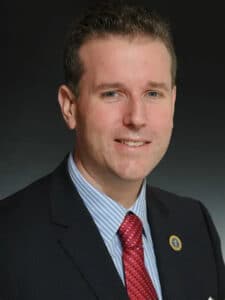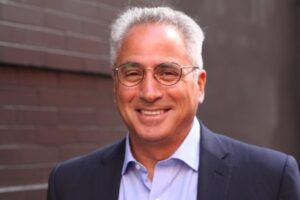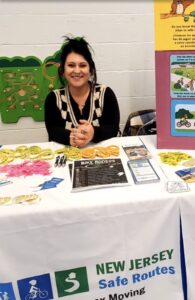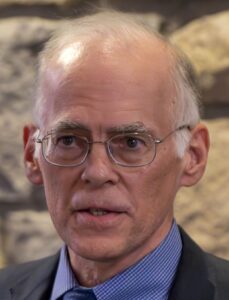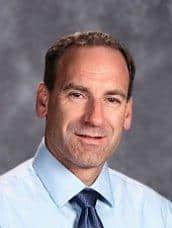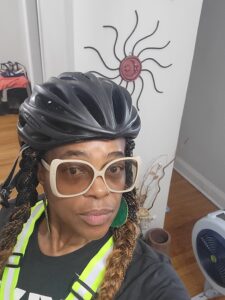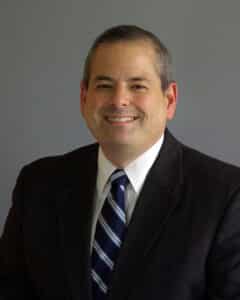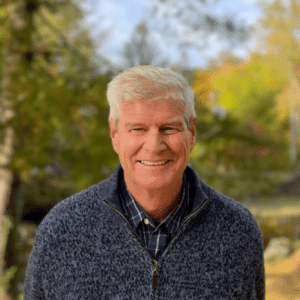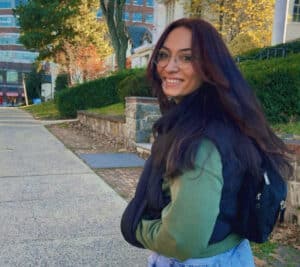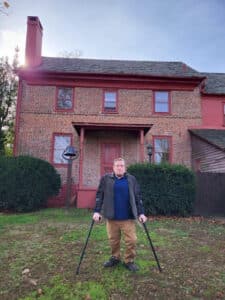Stroad: “…a street/road hybrid and, besides being a very dangerous environment (yes, it is ridiculously dangerous to mix high speed highway geometric design with pedestrians, bikers and turning traffic), they are enormously expensive to build and, ultimately, financially unproductive…The result is an expensive highway and a declining tax base.” Charles Marohn, Strong Towns
Stroads represent the antithesis of a good street – a space that promotes safety, community, good architecture, and financial resilience at the lowest possible cost. Stroads fail to provide safety to pedestrians and bike riders, as they were built to accommodate cars. The lack of bike lanes, adequate crosswalks, safe access to public transit, and a general overall lack of a sense of “people scale” contribute to the high incidence of pedestrian fatalities and injuries on stroads.
In this era of Complete Streets, stroads are the primary target for a massive overhaul, and New Jersey has its share of these aesthetically repugnant, economically destructive, and dangerous roads. Asbury Park’s Main Street through its downtown is State Route 71 and could easily be the picture next to the definition of a stroad. Route 71 runs through Asbury Park from Route 33 in Neptune north to where it becomes Deal Lake Drive and swings east. The section that forms Main Street is a four lane highway about a mile in length.
But it gets worse. Not only is Route 71 a landing strip, but just about every intersecting street is also an expansive swath of pavement with virtually no markings or signage, allowing drivers to zoom away from every intersection at warp speeds, only to slam on the brakes at the next traffic light. And zoom they do. Asbury Park is a sea of pavement built for speed.
Mixed in with this are people on foot attempting to cross at intersections that have no pedestrian signaling of any kind, and people on bikes pedaling along parked cars, many riding against speeding traffic, some trying to reach the beach, others headed to jobs along Main Street, and still others running errands, all hoping not to get squashed on roads not designed for them or for anyone else who is not moving at multiples above the speed limit. It’s the urban equivalent of the wild west, and the last thing anyone appears to be concerned about is pedestrian and bike rider safety. Main Street has outdated traffic lights, no pedestrian crossing signals of any kind, faded crosswalks, and virtually no other street infrastructure that would calm speeding traffic. In fact, the city seems to have virtually escaped the enactment of the state’s 2010 crosswalk law – the “stop and stay stopped” law that requires vehicles to stop at all marked and unmarked crosswalks when there is a pedestrian waiting to cross – as the bollard signage placed in the roadways at many crosswalks throughout New Jersey are can scarcely be found in Asbury Park.
Last Spring, the Asbury Park Complete Streets Coalition asked several hundred residents what they liked about Main Street, and very few could come up with anything. It is the place one loves to hate. But more importantly, many appear never to have thought of Main Street as a place they could love. Why not? Because in Asbury Park, as in many cities and towns in New Jersey, stroads are so much a part of our downtowns that we have come to accept them as something we are “stuck with.”
Late last summer, NJDOT presented a “road diet” – a plan for Route 71 through Asbury Park that would convert the highway into a pedestrian and bike friendly street, calming traffic, improving safety and providing an opportunity to revitalize the downtown, all at no cost to the city. In a hasty move, Mayor John Moor turned down the proposal, calling it his “finest victory.”
This for a roadway that saw 644 automobile crashes for years 2010 through 2014, of which 65 involved either a pedestrian or a bike rider. In those crashes, 195 people were injured, including incapacitating injuries in many of them. That’s almost two and a half crashes every week, with an injury every 9 days.
There are currently about 18 commercial vacancies out of about 150 on this stretch of roadway. That’s 12% of storefronts not earning tax revenues for the city, in an era of cash-strapped municipal budgets and constrained resources. A road that makes it easy for pedestrians and bike riders to reach businesses along it is a road with successful businesses. One need only look at the example of 9th Avenue in New York City to understand that when people aren’t flying past businesses, or having to drive around in search of a parking spot, or who can safely and confidently walk or pedal to reach a store, the businesses thrive.
Many of these businesses are places of employment for residents of the city’s west side, an underserved neighborhood of people who are highly dependent upon bikes for transportation. Take a walk along Main Street (if you dare) and you’ll notice that many of the bikes locked up along the street belong to workers of the businesses.
In June, the Asbury Park Complete Streets Coalition presented the City Council with a sign-on letter stating support for the road diet from 23 local businesses and three state level advocacy groups, including NBWC. They also presented a petition that included signatures from over 400 residents and visitors, all in favor of building a better Main Street.
In short, Asbury Park’s Route 71 is the poster child for a stroad. Walk along its sidewalks, or pedal along its parked cars, (again, if you dare) and you will hear it screaming for a road diet. With the ongoing revitalization of Asbury Park, the Route 71 project has tremendous upside potential, at no cost to the city. Call it a gift from NJDOT. It’s time for the Mayor and the City Council to recognize what the many businesses and residents already have, that their “finest victory” is a Main Street that supports safety, community, and economic vitality.
By Cyndi Steiner, Executive Director
[Best_Wordpress_Gallery id=”4″ gal_title=”Asbury Park”]







